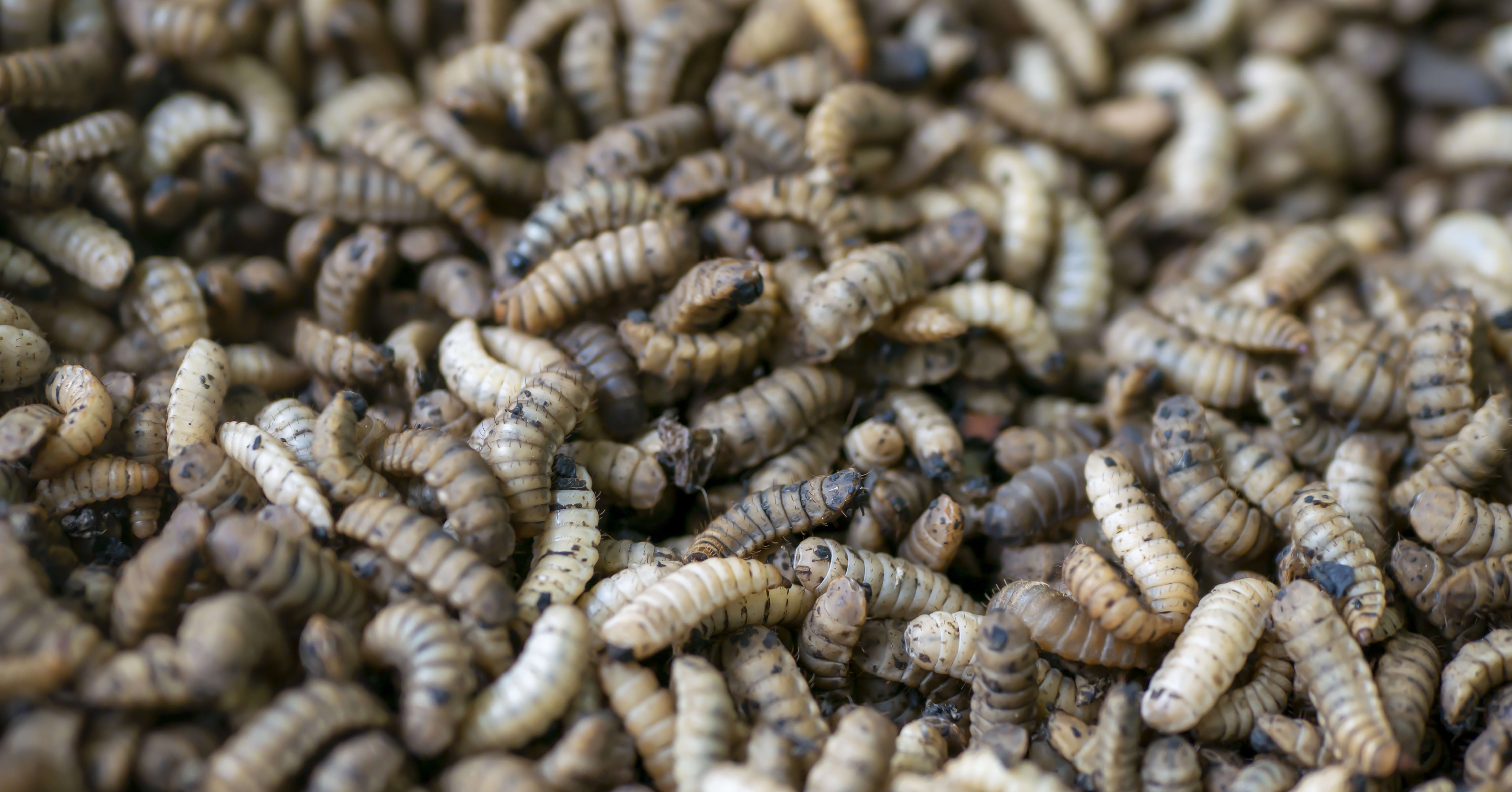This is a summary of a research report that investigates costs of production at large Black Soldier Fly Larvae (BSFL) producers, and explores whether they can displace fishmeal as a feed ingredient at scale. You can request access to the full report here.
Key points
- Over $1 billion has been invested into Black Soldier Fly Larvae (BSFL) farming since 2014.
- BSFL producers have ambitions to displace fishmeal as a feed ingredient. If successful, this could unlock growth in aquaculture.
- We investigated costs of production at four of the largest BSFL producers to better understand the prospects of them making major inroads into aquaculture feed.
- We found production costs at these firms will most likely be too high to displace fishmeal.
- We anticipate a smaller BSFL sector focused on high-value market segments rather than bulk feed commodities.
- Our analysis has lots of caveats, including generalizability across different business models and geographies. Read the long summary or full report for more detail.
Executive summary
- Significant investment has flowed into black soldier fly larvae (BSFL) farming, where producers have ambitions to create feed ingredients for aquaculture (aquafeed).
- Since 2014, over $1 billion has been invested into black soldier fly larvae (BSFL) farming.
- At present, BSFL producers mainly sell ingredients to the premium pet food market.
- But they have ambitions to position BSFL ingredients as a more sustainable alternative to fishmeal, an important feed commodity for farmed fish and shrimp.
- If these ambitions are realized, it could unlock growth in the aquaculture sector.
- But the prospects of BSFL producers displacing fishmeal in aquafeed remain uncertain.
- Recent high–profile failures have raised questions about the future of the ‘insect as feed’ industry and the viability of BSFL producers making major inroads into aquafeed.
- To shed light on this issue, we estimated production costs across four of the largest BSFL producers (by funds raised).
- We estimate that production costs for these BSFL producers will be too high to meaningfully displace fishmeal.
- Our research suggests BSFL producers would need to keep production costs below $1,600 per tonne of dried insects in order to displace fishmeal at a meaningful scale.
- For a hypothetical ‘average producer’, we estimated median production costs to be double this: around $3.7K per metric tonne of dried insects (see Chart 1).
- We also estimated production costs at six current and planned production facilities, where median costs ranged from $2.3K to $6.1K per tonne.
- Notably, none of the evaluated facilities demonstrated a 90% subjective confidence interval for production costs that undercut the $1,600 per tonne threshold.
- It’s also unclear whether BSFL producers will be able to get production costs as low as our estimates.
- Our cost estimates above are conditional on facilities operating at full capacity.
- But given deteriorating investor sentiment and a constrained funding outlook, it remains an open question whether existing facilities will ever reach full capacity.
- It is also uncertain whether firms will be able to raise sufficient capital to complete construction at sites that have been announced but are not yet in operation.
- We anticipate a smaller, less sustainable BSFL sector focused on high-value market segments. The results of this analysis have led us to believe that the BSFL sector will:
- end up much smaller by 2030 than many previous industry forecasts;
- focus on high-value applications rather than compete with feed commodities on price;
- struggle to live up to sustainability claims predicated on displacing fishmeal.
- Our analysis has lots of caveats and uncertainties
- Our cost estimates are based on centralized, mass-production business models in Europe and North America, which rely heavily on grain-based substrates.
- Findings may not be universally generalizable across different business models or geographic contexts.
- Further details are available in the full report.
- The full report contains detailed information on the calculation methodology and facility-specific cost estimates.
- To request access to the full report, please fill out this form.
Chart 1 – Estimated production cost ‘by type of cost’ at a hypothetical ‘average facility’
Acknowledgments
This post is a project of Rethink Priorities—a think tank dedicated to informing decisions made by high-impact organizations and funders across various cause areas. The lead author is Sagar Shah, and this summary reflects his views. This report draws heavily on research conducted by Michael St. Jules during his time at Rethink Priorities, though it doesn’t necessarily reflect his latest thinking. Thanks to Ben Stevenson for reviewing the report and checking calculations, and Ula Zarosa and Shaan Shaikh for assistance with copyediting. Header image photo credit: Jaka Suryanta.




